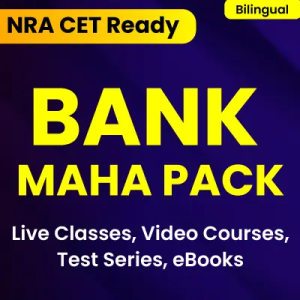Directions (1-10): In the following passage, some of the words have been left out, each of which is indicated by a number. Find the suitable word from the options given against each number and fill up the blanks with appropriate words to make the paragraph meaningful.
There is a school of thought that some kinds of complex governance/policymaking functions should be insulated from the tumult of partisan politics by (1) them to technocrats. Giving in to the seductive appeal of this argument to the (2) of breaking the line of accountability of policymakers to the people altogether would undermine democracy and run the risk of these technocratic bodies being captured by (3) interests, instead of practising fidelity to professionalism. The proposal of the RBI’s Urjit Patel committee to entrust monetary policy (4) to a committee of wise men in which even the RBI governor would have just one vote and can be (5) belongs to this school. This is a bad idea that (6) firmly be rejected.
At present, the RBI has reasonable autonomy but holds consultations with the government and has begun to testify before parliamentary committees. Both are needed to make monetary policy and regulation of the banking system (7) to the people. A committee does advise the RBI governor on policy rates, but he makes the final call. One person taking the final call seems less democratic than a committee voting to make that call only (8) that one person is taken out of his institutional context. The RBI governor is not some lone ranger but the RBI’s link with the elected government of the country. Simultaneous accountability of the RBI governor to a committee of Parliament would (9) that the government does not make (10) demands on the central bank as well.
Q1.(a) allocate
(b) entrusting
(c) imposed
(d) confer
(e) holding
Q2.(a) ambit
(b) stretches
(c) term
(d) extent
(e) length
Q3.(a) vested
(b) endowed
(c) simple
(d) compound
(e) any
Q4.(a) arranging
(b) initiating
(c) setting
(d) treating
(e) beginning
Q5.(a) concerned
(b) agrees
(c) associates
(d) correlates
(e) overruled
Q6.(a) needs
(b) must
(c) had
(d) ought
(e) requires
Q7.(a) adapted
(b) fitted
(c) responsible
(d) accountable
(e) attributed
Q8. (a) while
(b) whereas
(c) whether
(d) where
(e) when
Q9. (a) ensure
(b) think
(c) protect
(d) pursue
(e) follow
Q10. (a) fervent
(b) obsolete
(c) arbitrary
(d) despotic
(e) passionate
Solutions
S1. Ans.(b)
S2. Ans.(d)
S3. Ans.(a)
S4. Ans.(c)
S5. Ans.(e)
S6. Ans.(b)
S7. Ans.(d)
S8. Ans.(e)
S9. Ans.(a)
S10. Ans.(c)





 English Language Quiz For Bank Foundatio...
English Language Quiz For Bank Foundatio...
 English Language Quiz For Bank Mains Exa...
English Language Quiz For Bank Mains Exa...





